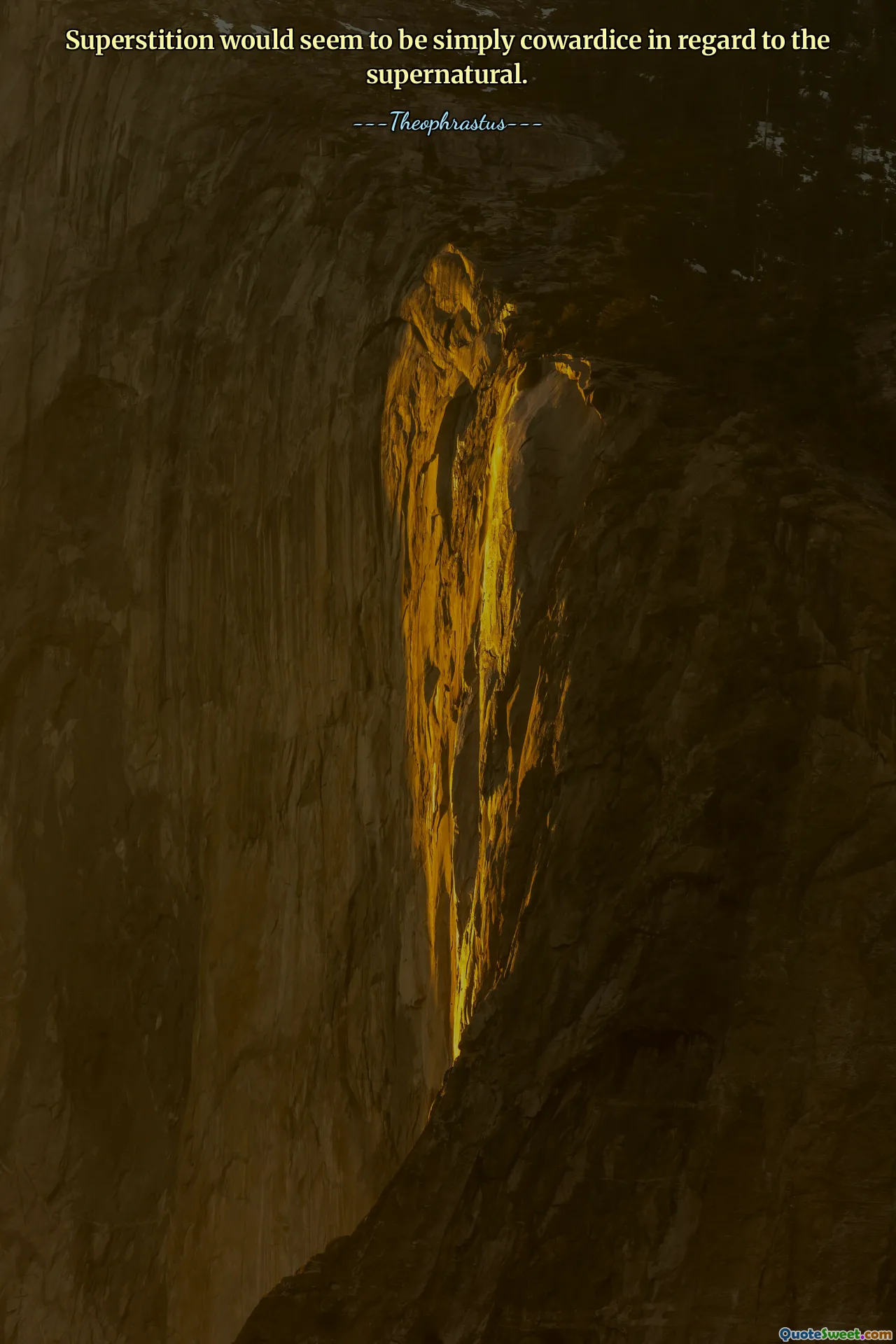
Superstition would seem to be simply cowardice in regard to the supernatural.
📖 Theophrastus
---Theophrastus---
This quote invites us to reflect on the nature of superstition and its roots in human psychology. At its core, superstition often manifests as a fear of the unknown or a reliance on irrational beliefs to exert some sense of control over uncertainties. The suggestion that superstition is 'simply cowardice' emphasizes that these beliefs may stem from an underlying fear of confronting aspects of existence that are beyond empirical understanding—what Theophrastus calls the 'supernatural.' In a way, this perspective encourages us to view superstition not merely as foolishness, but as a symptom of human vulnerability and a desire to avoid discomfort or uncertainty.
By framing superstition as cowardice, the quote challenges us to consider the courage required to face life's mysteries openly. To hold rational beliefs, to question, and to seek understanding involves confronting our fears rather than succumbing to them through superstition. It implies that scientific curiosity and philosophical inquiry are acts of bravery—they require confronting fears and doubts rather than retreating into irrational comfort.
Furthermore, this perspective aligns with the idea that personal growth and enlightenment come from embracing the unknown rather than avoiding it. Superstition may initially serve as a protective mechanism, but over time, it can hinder genuine understanding and progress. Recognizing superstition's cowardly roots might inspire individuals to develop intellectual courage, seeking knowledge and reason instead of clinging to unfounded beliefs.
Ultimately, this quote challenges us to reconsider our responses to the mysterious and the supernatural, emphasizing that true bravery involves engaging with the unknown authentically, rather than retreating into superstition.











